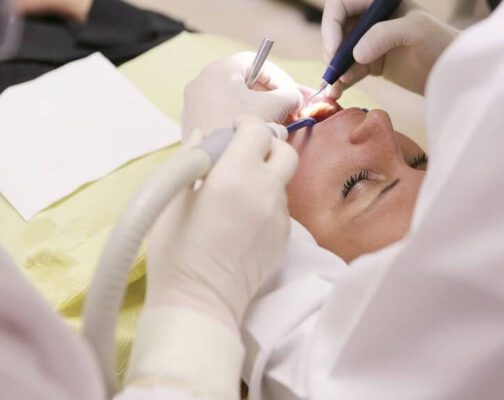Are you facing a tooth problem? Do you know what to expect from oral surgery?
Before visiting the oral surgeon, you need to know that the whole procedure depends on what exactly is going on under your gums. The doctor will evaluate the situation and determine if there’s a need for any surgery. If one is required, he or she will inform you of the recovery time.
In this article, we will introduce to you the 3 most common procedures performed by oral surgeons and how you can prepare them.
Let’s get started!
1. Wisdom Teeth Extraction
Oral surgery that frequently includes the removal of the third molar at the rear of the mouth is wisdom tooth extraction. These teeth need to be pulled because they frequently create issues like crowding, discomfort, and cleaning trouble.
The procedure is usually performed by an oral surgeon under local anesthesia or sedation. To prepare for this, you should stop taking certain medications and arrange for someone to drive them home afterwards.
It is also important to inform the surgeon about any existing medical conditions or allergies. With proper preparation, it can be a smooth and successful procedure.
2. Dental Implants
Dental implants are a type of oral surgery that is becoming popular as a solution for missing teeth. This procedure involves placing artificial tooth roots into the jawbone, providing a strong and stable foundation for a replacement tooth. Before undergoing this surgery, it is important to research for credentials, read reviews, and ask for recommendations from friends or family in choosing an oral surgeon.
Along with strictly adhering to the surgeon’s pre-operative instructions, it is essential to address any current medical issues with them. To keep your teeth clean and healthy, this involves brushing and flossing. By doing this, the chance of infection both during and after surgery will be reduced. In the days before your operation, refrain from smoking and drinking since these activities might hinder recovery.
3. Corrective Jaw Surgery
Corrective jaw surgery, also known as orthognathic surgery, is a type of oral surgery that is used to correct severe jaw misalignment and improve facial symmetry and function. The procedure involves repositioning the jawbones to create a more balanced bite and facial structure.
Before undergoing corrective jaw surgery, it is important to prepare both mentally and physically. This may involve undergoing any necessary medical tests.
Also, this includes avoiding certain foods such as hard, crunchy foods such as nuts, and chips, and hard fruits like apples, as well as sticky or chewy foods like gum and caramel. These types of foods can put unnecessary strain on the jaw and disrupt the healing process.
Avoid spicy or acidic foods that could potentially irritate the surgical site. Instead, opt for softer foods that require minimal chewing, such as soups, smoothies, and mashed potatoes. It is also important to have a support system in place and to make necessary accommodations for post-surgery care.
Get the Best Results With the Best Dental Oral Surgeons
When it comes to surgery, it is crucial to seek information and opinions from multiple professional oral surgeons. This not only ensures that you have a comprehensive understanding of the procedure but also allows you to make an informed decision about your health.
Don’t hesitate to ask about different types of surgery and take the first step toward a successful procedure. Schedule consultations today!
If you find this article helpful and want to read more great content, check out our other posts.
